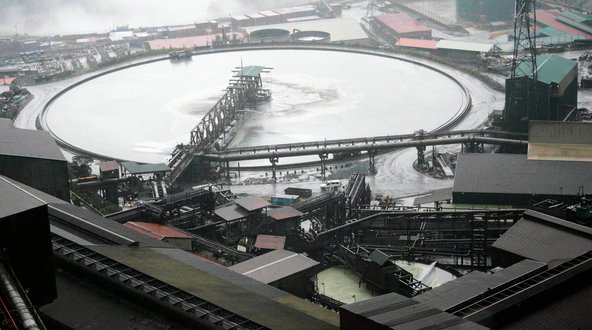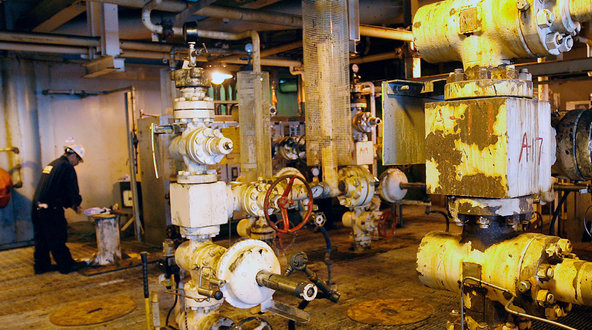Eni said it might take several more days to reopen the pipeline, which is the single transmission conduit for Libyan natural gas to Italy and, from there, elsewhere in Europe.
While company executives said the supply impact would be minimal, given Eni’s stored reserves in Italy and other sources of gas, analysts said the turmoil had amplified concerns about the stability of energy production and distribution in North Africa. Energy markets and investors are still nervous after the murderous assault in January by militants on an Algerian gas field run by BP and Statoil of Norway.
“The episode is yet another example of energy firms’ operations in North Africa being disrupted by security problems,” IHS, an energy research firm in London, said Monday in a report. “The collective impact of these disturbances is to further discourage foreign direct investment into the energy sector.”
On Saturday, as fighting between rival Libyan militias became too close for comfort, Eni, the biggest foreign oil and gas player in Libya, shut down its giant Mellitah gas complex on the coast west of Tripoli and evacuated most of its personnel.
The Mellitah complex, which Eni built for an estimated €9 billion, or $12 billion, and opened in 2004, gathers and processes gas from fields in western Libya and then sends it through the Greenstream pipeline, which runs under the Mediterranean and comes ashore in Gela, Sicily.
The gas business is a joint venture with the Libyan national oil company.
Although Greenstream provides about 12 percent of Italy’s gas, Italian consumers are unlikely to notice the temporary shutdown, said Kash Burchett, an analyst at IHS. The stagnant Italian economy has sharply reduced demand for gas; Italy has about one month’s worth of gas in storage; and several other pipelines deliver the fuel from other sources, including Algeria and elsewhere in Europe.
But the shutdown could further set back the troubled economies of Libya and its North Africa neighbors, while dimming prospects for new investment in the region by international oil and gas companies.
Since the fall of Col. Muammar el-Qaddafi in 2011, Libya has been in a state of chaos as rival militias vie for turf and treasure. But until now the armed groups have left Libya’s oil and gas fields alone — or in Eni’s case, have even carefully protected the operations, which keep the country’s lights on and the money flowing in.
“The energy installations have been left out of the instability because there is wide recognition about as to how important they are to the economy,” said Richard Cochrane, a security analyst at IHS.
Why the militias crossed a line this past weekend is not entirely clear. One theory, not denied by Eni, is that the two militias were fighting for the privilege of guarding Libya’s most important oil and gas installation, as well as the economic and political benefits that accrue to whoever has that status.
“Libya is different from Algeria; there is not yet a capacity on the part of the central government to provide security,” said David L. Goldwyn, a former senior energy envoy for the U.S. State Department. As a result, he said, “companies are obliged to secure local security.”
The inability of the Tripoli government to provide security means “the investment climate in Libya has been challenged for some time,” said Mr. Goldwyn, who now heads Global Strategies, a consulting firm in Washington. “You are seeing companies protect existing investments in Libya, but being much more cautious in respect to large-scale” new commitments, he said.
Foreign energy companies with existing operations in North Africa might be hard to uproot. But countries including Libya, Algeria and even Egypt, whose economies depend on the oil and gas industry, are going to have trouble attracting new investments.
In a research note published Monday, Fadel Gheit, an analyst at Oppenheimer, argues that Houston-based Apache, which has built a big, highly profitable oil business in Egypt, would be better off decamping from the land along the Nile where it now obtains 28 percent of its petroleum.
“We are more pessimistic about Egypt’s future than in any time in the last two years,” Mr. Gheit wrote. We think Apache “would be better off exiting Egypt by selling its operations and using the proceeds to buy back shares, reduce debt and boost investments elsewhere.”
Apache declined to comment.
Article source: http://www.nytimes.com/2013/03/05/business/energy-environment/05iht-gas05.html?partner=rss&emc=rss

